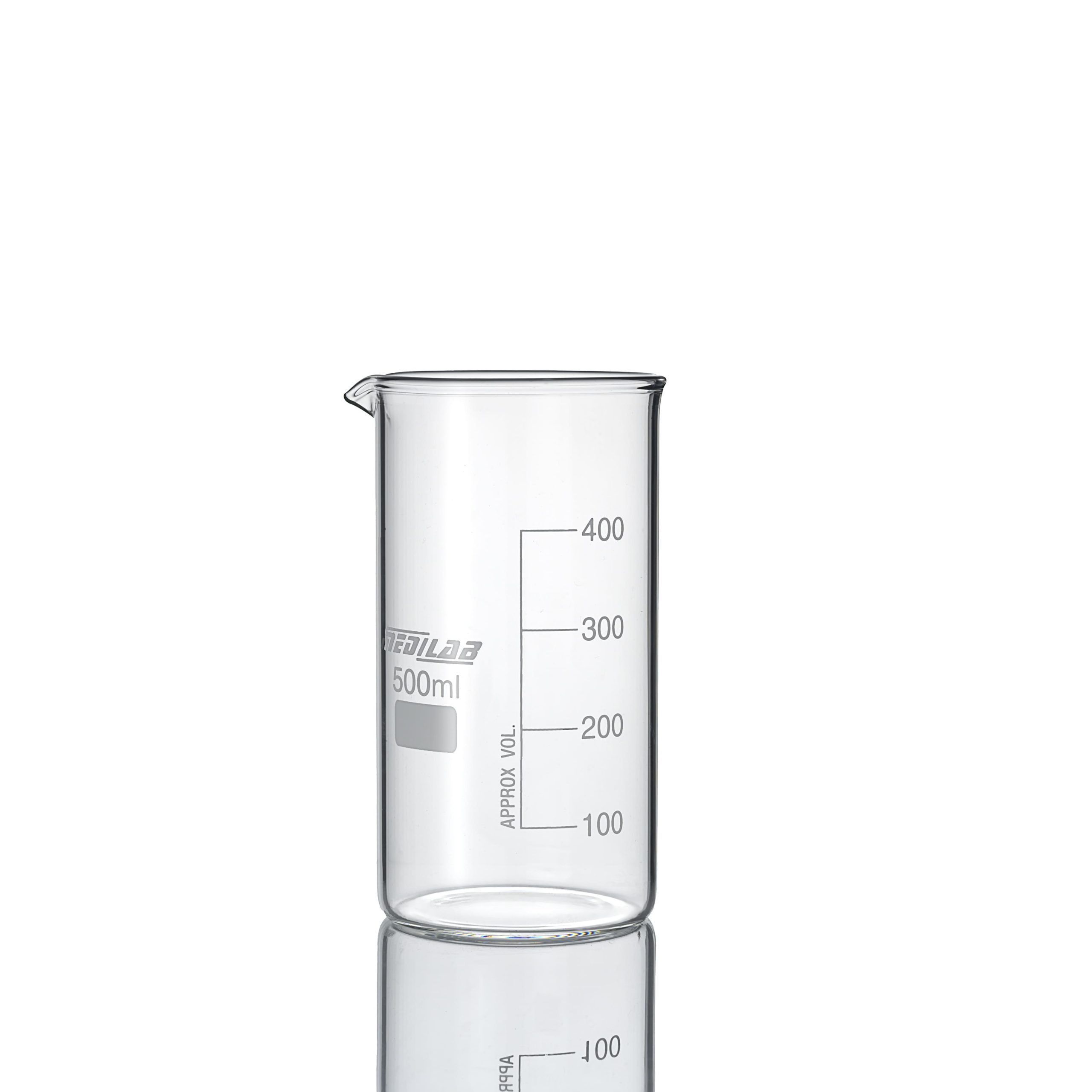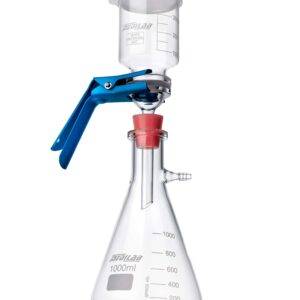Description
| Catalogue No. | Capacity ml | Dia. mm | Height mm |
| 11002/1 | 50 | 38 | 70 |
| 11002/2 | 100 | 48 | 80 |
| 11002/2.1 | 150 | 54 | 95 |
| 11002/3 | 250 | 60 | 120 |
| 11002/3.1 | 400 | 70 | 130 |
| 11002/4 | 500 | 75 | 142 |
| 11002/4.1 | 600 | 80 | 150 |
| 11002/5 | 1000 | 90 | 192 |
The MEDILAB Tall Form Beaker is a cylindrical borosilicate glass vessel designed for precise heating, mixing, and measuring of laboratory solutions. Its extended body height enables better control of reactions with moderate volume expansion. Widely used across scientific, industrial, and educational laboratories, it ensures accuracy, chemical durability, and reliable performance in routine and advanced analytical workflows.
Key Features
- Manufactured from premium Borosilicate Glass 3.3 for superior chemical and thermal resistance
- Tall-form design minimises evaporation and splashing during heating or mixing
- Uniform wall thickness ensures mechanical strength and repeatable performance
- Easy-pour spout for spill-free transfer of liquids
- Clear, fused graduations for quick and approximate volume readings
- Suitable for use on hot plates, water baths, and open flames (within recommended limits)
- Autoclavable and reusable for long-term cost efficiency
Material Specifications
- Material: Borosilicate Glass 3.3
- Properties: High chemical resistance, low thermal expansion coefficient, excellent heat tolerance
- Compliance: Conforms to ISO 3819, DIN 12331 standards for laboratory glassware
- Performance: Withstands high-temperature applications and rapid thermal changes when used correctly
Technical Specifications
- Available Capacities: 50 mL to 1000 mL (as per the standard size table)
- Design: Tall-form, uniform cylindrical profile with beaded rim
- Graduation Accuracy: Class B (approximate measurements)
- Tolerance: As per ISO 3819 guidelines
- Calibration: Not applicable (beakers are for approximate volume measurement)
- Accessories: Compatible with MEDILAB glass lids, stirring rods, and support stands (sold separately)
Handling & Precautions
- Use gradual heating to avoid thermal shock
- Clean with mild detergents; avoid abrasive materials
- Dry completely before high-temperature applications
- Do not expose to direct flame without proper support
- Avoid sudden temperature changes (e.g., transferring from a hot plate to cold water)
- Autoclave at recommended temperatures to maintain glass integrity
Applications
- Pharmaceutical QC/QA and formulation testing
- Chemical analysis and reagent preparation
- Academic laboratories for routine experiments
- Biotechnology and life science workflows
- Industrial R&D and process development
- Ideal for mixing, heating, titration setups, and solution preparation







